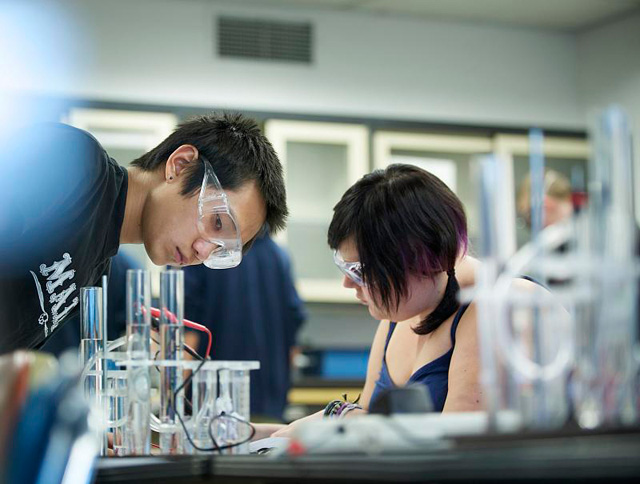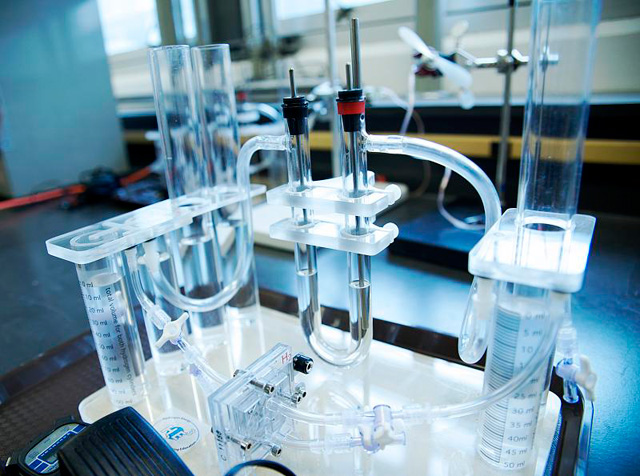
In October 2008, the Center was granted $395,000 to develop the program, which focuses on providing hands-on hydrogen energy education to engineering students in the CSU and UC systems.
“The best thing about the program is that it puts students in touch with real life problems and modern technology,” says Peter Lehman, Director of the Schatz center. “We focus on ‘issue oriented’ science. We take something from the modern world and relate it to what’s going on in class.”
The center was working with UC Berkeley’s Lawrence Hall of Science on a project called HyTEC – Hydrogen Technology and Energy Curriculum – to introduce hydrogen technology to high school chemistry and environmental science classes. At that time, the Department of Energy solicited the group to develop additional educational programs that introduce hydrogen and fuel cell energy topics, and H2E3 was created.

The initial funding for H2E3 paid for the development of curricula and for equipment from bench-top electrolyzer/fuel cell experiment kits to sophisticated fuel cell test stations for advanced undergraduate students.
The smaller experiment kits are used in freshman- through junior-level lab exercises. “They’re really cool experiments,” Lehman says. “They’re a lot of fun and the feedback we get from students is very positive.”
In the labs, students are able to see how fuel cell technology works. They learn how to electrolyze water molecules and split them into hydrogen and oxygen atoms. They’re also taught how to use that stored energy to create electricity and how to monitor their measurements to test the efficiency of fuel cell systems.
“It was awesome and totally mind blowing to get to work with this device,” said one student in an anonymous class feedback form. “I did not expect to have this chance until much later.”
Senior level classes use the larger, more complex fuel cell test stations.
Currently, equipment and curricula are shared and shipped between participating universities. The ultimate goal of the program is to make hydrogen energy education and hands-on learning accessible to engineering students statewide.
The center has used the extra $15,000 to build 30 additional experiment kits, with the intent that they will be shared with other campuses. Ten of the new stations will go to Sonoma State University. The Schatz Center is negotiating with other CSU and UC campuses and two of those campuses will receive 10 stations each.